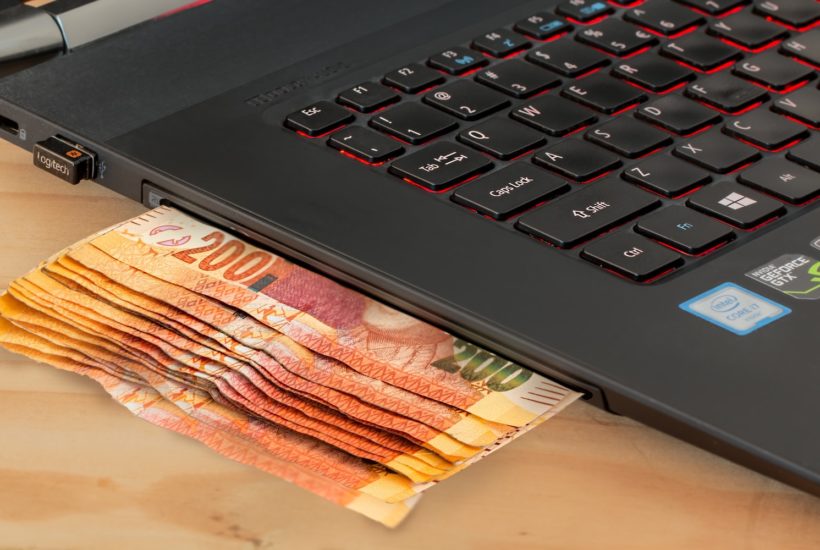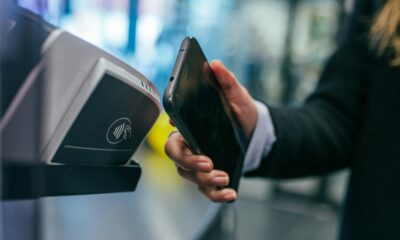Featured
PayPal and other electronic wallets in Russia
According to a recent study by Mediascope, more than 77% of Russians use electronic money. It is not entirely surprising, because most people now know how to pay on the Internet with electronic-wallets (also known as E-wallets). E-wallets now perform an important social and economic function to users throughout Europe and America. It is one of the most affordable ways to make non-cash payments.

You can open your e-wallet free of charge anywhere in Russia, as well as the rest of the world. It takes just a few minutes. In fact, for many people, the e-wallet was and still is the first step towards cashless payments.
Alla Savchenko, Head of Product Development Department of Yandex.Money answered the most important questions on electronic wallets.
Where did the electronic wallets come from
The first “electronic wallet” appeared in the late 1990s. It quickly became clear that the global network is not only a place for communication, but also for commerce. However, the banking sector was not ready to accept payments on the Internet due to security risks.
There are companies that have decided to satisfy the emerging need for online payments. Among those who entered the e-wallet market back then, the most famous nowadays is PayPal service.
The company was founded in 1998 and became part of eBay in 2002. Its e-wallet became the main method of payment on the auction site.
In Russia, the availability of the Internet in those years was not as high as in the United States. However, Internet-Entrepreneurs also had an understanding that users would need online payment tools.
The Yandex.Money service launched in 2002, with more than 46 million e-wallets registered.
What are electronic wallets for
An e-wallet helps you pay online safely. Also, you can receive and send money without passing on your personal data. The user does not need to provide their card number or give up their phone number.
E-wallets are also indispensable if you need to organize a public collection of funds. For example, for charitable purposes or to finance a crowdfunding project.
Any person will be able to follow a link and send money from an electronic wallet or bank card. It guarantees that the money will go where they had to.
How to open an electronic wallet

Anyone who has access to the Internet can open an e-wallet. To do this, you need to go to the site of the payment service and find the item “Create purse”/”Register”. Next, you need to specify some data about yourself – login, mail, mobile phone number.
That’s enough to pay from your wallet for small purchases. More opportunities will be available to those who provide their passport data. In order to use all the functions of the wallet, you need to pass full identification.
Most often you will be asked to come to the payment service office or its partner. Usually a company with a huge network of shops and businesses.
Some services also have remote alternatives. You can top up your wallet in cash, transfer from your bank account, mobile phone account and other ways. It depends on the payment service you choose.
Russian leaders in electronic wallets
Today, according to Mediascope, every second user of the “Russian Internet” uses PayPal (46.1%), WebMoney (39.9%) and QIWI (36.9%). They all solve the same problem. They help people to pay and transfer money online. But each of these companies has some distinctive features.
Yandex.Money can pay for any goods and services online. If a person issues a virtual or plastic card to his or her purse they can use it both online and offline. As well as withdraw cash from any ATM around the world.
Qiwi international payment electronic system started to work in 2007. Among the features of QIWI wallet: payment for mobile communications, Internet, housing and utilities and various online services. The company offers its own Visa QIWI Wallet bank cards linked to the wallet.
Historically, the service WebMoney has focused on advanced users. For example, WebMoney uses a complex system of passwords and personal data protection. Keys in file format, a connection of security systems E-NUM.
PayPal is the largest electronic payment system in the world. The fact that PayPal has become a part of eBay has contributed to its widespread growth. However, you can also use the wallet outside the auction site.
You may use it to pay for goods and services online. As well as to bind Visa, Mastercard, American Express, Discover and send money transfers.
Each electronic money service has its own peculiarities. All electronic wallets have a connection by the simplicity of entry and availability from anywhere in the world. Electronic wallets are the easiest and safest way to start using financial services and mastering non-cash payments.
Electronic wallets enable new businesses to thrive
One of the key benefits of the rise of electronic wallets is that it has allowed emerging businesses to thrive in Russia and around the world.
For example, Sports Betting Apps have grown rapidly over the last few years in a large part thanks to the prevalence of electronic money.
The phenomenon has also benefited emerging economies, giving ordinary people access to the banking infrastructure that allows them to interact with the wider world.
This was the intention behind FaceBook’s failed “Libra project”. By providing the world’s “unbanked” with access to electronic finance solutions you open up to the global economy.
__
(Featured image by Pixabay from Pexels)
First published in RB, a third-party contributor translated and adapted the article from the original. In case of discrepancy, the original will prevail.
Although we made reasonable efforts to provide accurate translations, some parts may be incorrect. Born2Invest assumes no responsibility for errors, omissions or ambiguities in the translations provided on this website. Any person or entity relying on translated content does so at their own risk. Born2Invest is not responsible for losses caused by such reliance on the accuracy or reliability of translated information. If you wish to report an error or inaccuracy in the translation, we encourage you to contact us.

-

 Africa2 weeks ago
Africa2 weeks agoMorocco Charts a Citizen-Centered Path for Ethical and Inclusive AI
-

 Africa8 hours ago
Africa8 hours agoSurging Expenditures Widen Morocco’s Budget Deficit Despite Revenue Growth
-

 Markets1 week ago
Markets1 week agoSoybean Market Reacts to Trade Hopes, High Stocks, and Global Price Pressure
-

 Cannabis4 days ago
Cannabis4 days agoSwitzerland Advances Cannabis Legalization with Public Health Focus
























